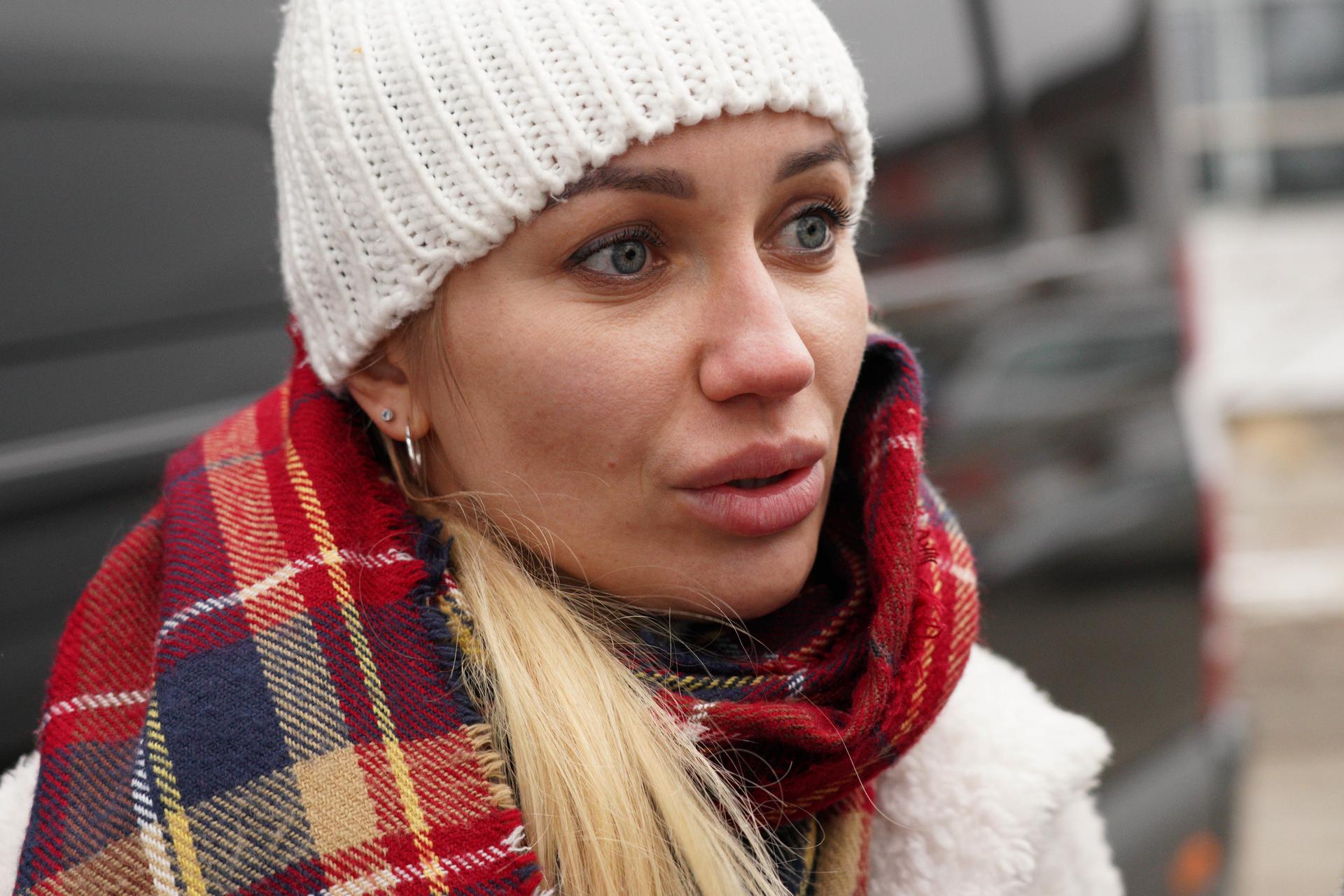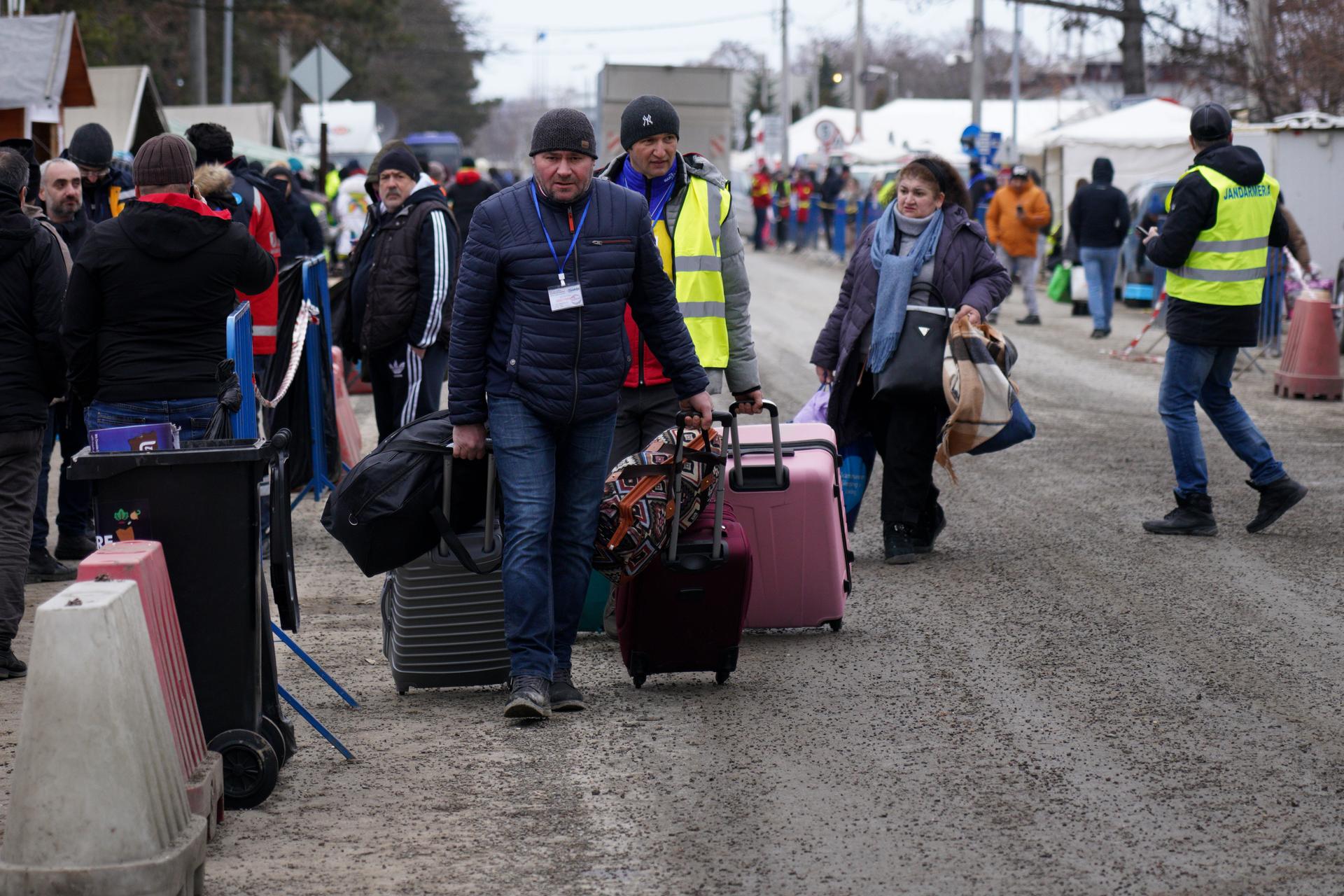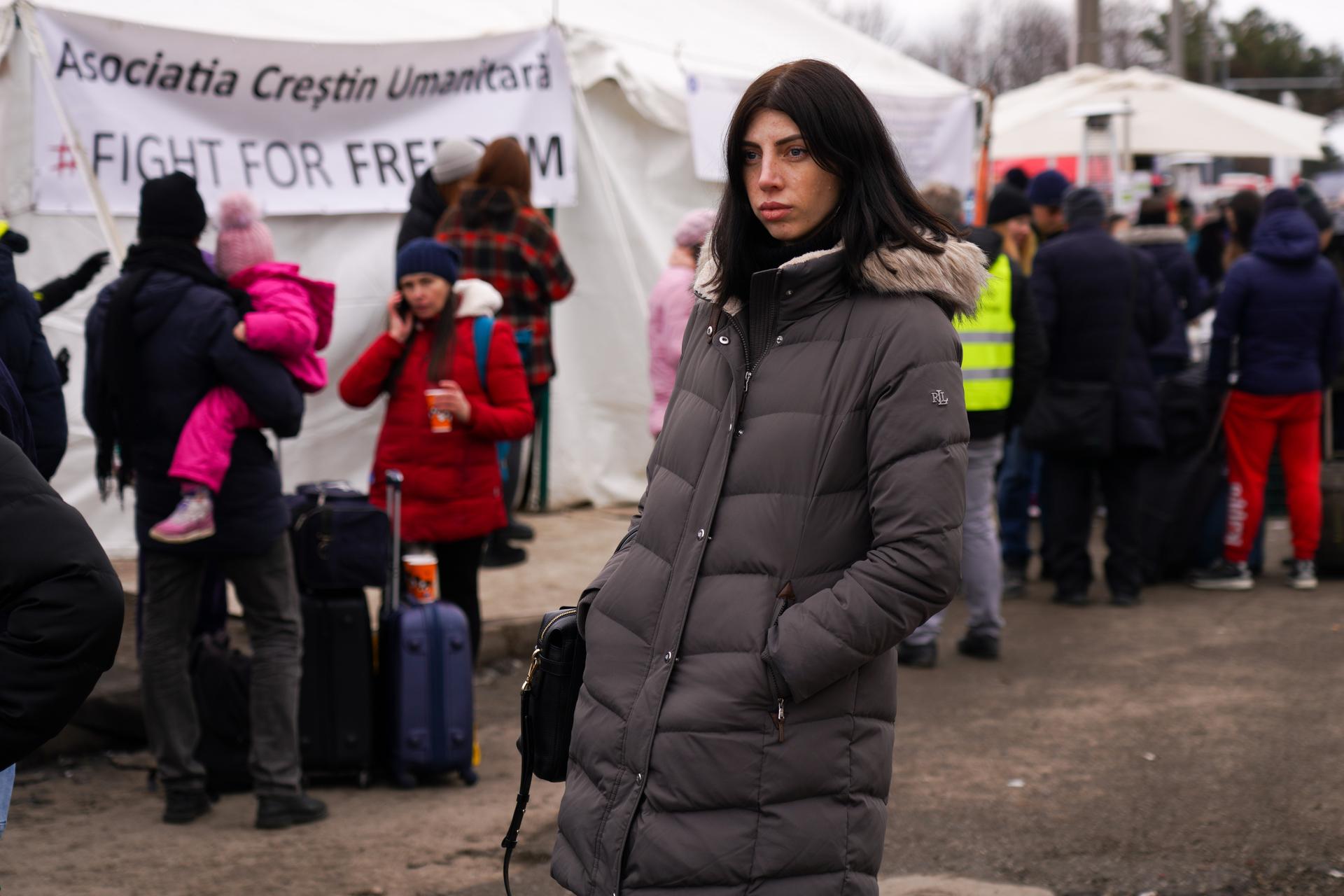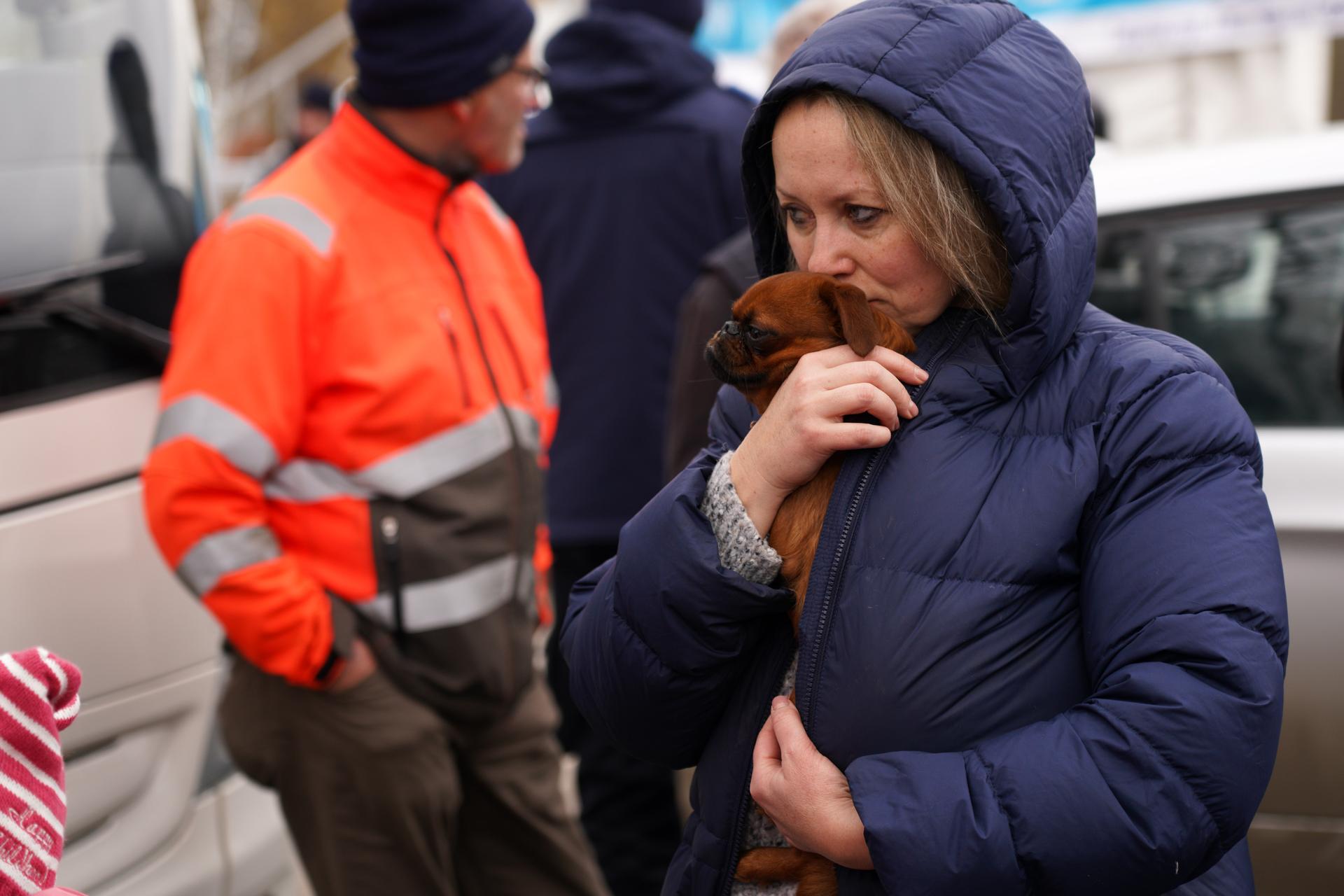Maria Moroz presses a cellphone to her ear as she struggles with a shaky Wi-Fi connection over the din in an Italian bar.
It’s been just two weeks since she fled her adopted city of Kharkiv, in eastern Ukraine. And already, she’s found herself on the front lines of an information battle.
“Now, I call my parents and I show to them what happened here. Like people from all world now help us. But our brothers kill us now,” Moroz said. “And I want them to look [at this with their] eyes. Not from news, Russian news. I want them looking from my phone, from these eyes.”

It’s a situation that many Ukrainians with families watching Russian state media propaganda are finding themselves in — trying to share the painful reality of war in Ukraine with their loved ones in Russia.
There’s been a steady stream of grisly news: apartment buildings bombed, a maternity ward destroyed and nearly 3 million Ukrainians desperately fleeing their nation.
Related: Russians in the UK face hate speech, verbal abuse as war rages in Ukraine
But on Russian state media, a much different picture is being painted — one where Russia is “liberating” Ukrainian cities from what the Kremlin calls “Nazis,” with Russian troops engaging in a so-called “peacekeeping” mission.
Moroz’s ordeal began on the morning of Feb. 24, when she was awakened at 5 a.m. to the sound of missiles nearby. She bolted upright, threw things into a bag and ran to a nearby bomb shelter where she stayed for the next seven days.

“I wake up, and it’s war. It’s like movie, like ‘Armageddon,’ you know,” she said.
But the rest of her relatives live in Russia and Crimea, an area annexed in 2014. It was during this war that Moroz first understood the power of state-controlled Russian media.
Related: Ukrainian refugees trying to get to the UK are stuck in the French port city of Calais
Announcers, she said, would claim that Russian speakers in Ukraine would be discriminated against, even attacked or killed. It took only two or three years, she said, until her parents — both Russian speakers — started to believe the same.
“My father, very smart father — he didn’t want to listen to me, he just wanted to see what it said on TV,” she said. “Like, really, it’s some magic.”

After attending university, Moroz moved to Kharkiv, started her own business as an event planner, and fell in love with her new city.
Earlier this year, she invited her parents for a two-week visit, and slowly saw their fears about Ukraine start to melt away.
“For two weeks, we go everywhere around — theater, cinema, restaurants,” she said. “And just after some days they understand it’s so nice [a] country. And they [were] so happy here. And I [was] happy I show[ed] them [the] real situation.”
Related: For developing countries, the war in Ukraine means even higher food prices
As she fled Kharkiv, Moroz continued to post updates on Instagram and other social networking sites.
She hoped to cut through the noise of Russian media, to reach her relatives who might listen to her and understand.
Only a few days ago, relatives asked her about claims on Russian TV that the United States and Ukraine were conspiring to produce bioweapons in Ukrainian labs. The accusation has been widely debunked.
“Still now, my dad checks Russian news all day. But afterward, he understands that it’s not always true. And my mother prays for my life,” Moroz said.
Little by little, she said, friends and relatives in Russia and Crimea have reached out to her. Some with private messages of support, but sharing fears that they cannot risk arrest for protesting in Moscow. Others simply want to talk or debate — those are the ones that bother her the most.
Related: Ukrainian, Russian tourists stranded abroad
“We have no power to have a discussion with people who just sit at home, relax and speak about our situation,” Moroz said. “We have our truth.”

As for the future, Moroz said that she’ll stay in Europe until she can safely return to Ukraine.
“Everybody from my city wants to go back,” she said. “We believe in our future, in our country because we really think it’s [a] great nation … When this situation began, we understood how deep [it] is [in] our souls.”
